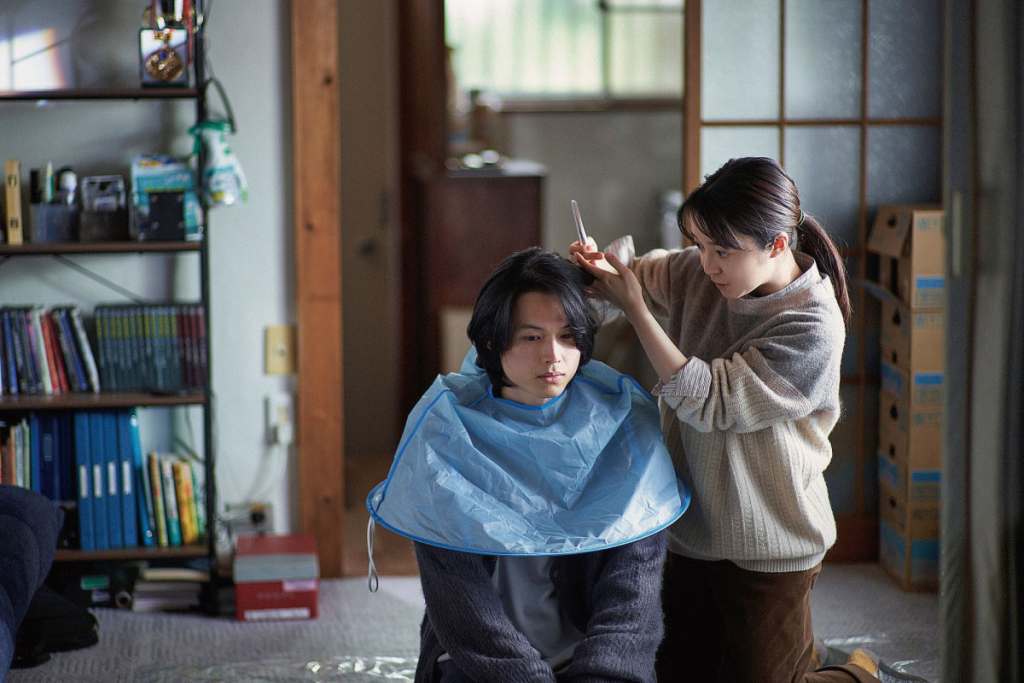3.5 min. read
Based on Maiko Seo’s 2020 novel, director Sho Miyake invites moviegoers into an insightful and poignant drama in his latest feature, All The Long Nights. The film features actress Mone Kamishiraishi, best known for voicing the lead role in Makoto Shinkai’s winning 2016 animated hit, Your name, as well as roles in the live-action Chihayafuru trilogy. It also marks her third leading live action role since Masayuki Suo’s Lady Mariko in 2012, and Yasuhiro Kawamura’s 2019 sequel, L-DK: Two Loves, Under One Roof.
The story centers on Kamishiraishi’s character, Misa, a corporate office worker whose symptoms of premenstrual syndrome have begun gravely affecting her work. She gets irritable and tends to lash out over trivial issues, and the side affects of her recent medications have her falling asleep on the job. Point in fact, these and a number of things cause her situation to snowball so much that she decides to turn in her resignation. Five years later, she finds work in product management for a company that assembles science kits for children.
Misa’s co-worker is Takatoshi – played by Hokuto Matsumura – who finds himself getting chewed out by Misa for opening a bottle of seltzer water. Little do either of them know that the incident would prove to be a rough introductory into one another, as Misa’s soon learns of Takatoshi’s own goings-on with panic disorder. He’s been largely able to control it for the most part, and even keeps in touch with friend and former employer Norihiko – played by Kiyohiko Shibukawa – in hopes of one day reapplying for his old job.
The paradigm between Misa and Takatoshi serves an in-roads to the larger narratives Miyake presents in All The Long Nights. It’s a detailed and empathetic look at how people cope with life’s harships, heretofore affected by their own internal ailments for the most part. Adjacent to our two leads is actor Ken Mitsuishi who plays their employer, Kazuo, who still mourns his brother’s passing years earlier. In memorializing him, he holds onto his treasured belongings, a few of which include an audio tape that Misa and Takatoshi use to help advance the creation of a mobile planetarium.
This is just one approach to their coping process, while the two form a friendship that allows one another a mutual shared space for levity and understanding. The process alone is a fascinating one, told through a calming lens in Miyake’s focus that often feels uneasy at times, because at no point does the movie draw a line when either main character is essentially healed. Why? Well, like I said. It’s a process. Even as Misa shows remarkable improvement, she still tends to crack. The same goes for Takatoshi who still has a ways to go before ever taking public transportation anywhere instead of walking.
The more illustrative messaging in All The Long Nights culminates primarily with discussions pertinent to the infinitude of space and the discovery of the stars, and the Earth’s movement around the sun. Multiple shots overlooking the city in the evening and daytime, as well as the few concentrated moments of our two main leads are ancillary to the context Miyake invokes in his new drama. The result is strong conveyance of stoic individualism and endurance, doing so through multiple dimensions, and with a lot of heart in All The Long Nights, a story grounded in reality and told with both pathos and poise.
All The Long Nights was reviewed for the 17th edition of Japan Cuts which runs from July 10 through 21.


